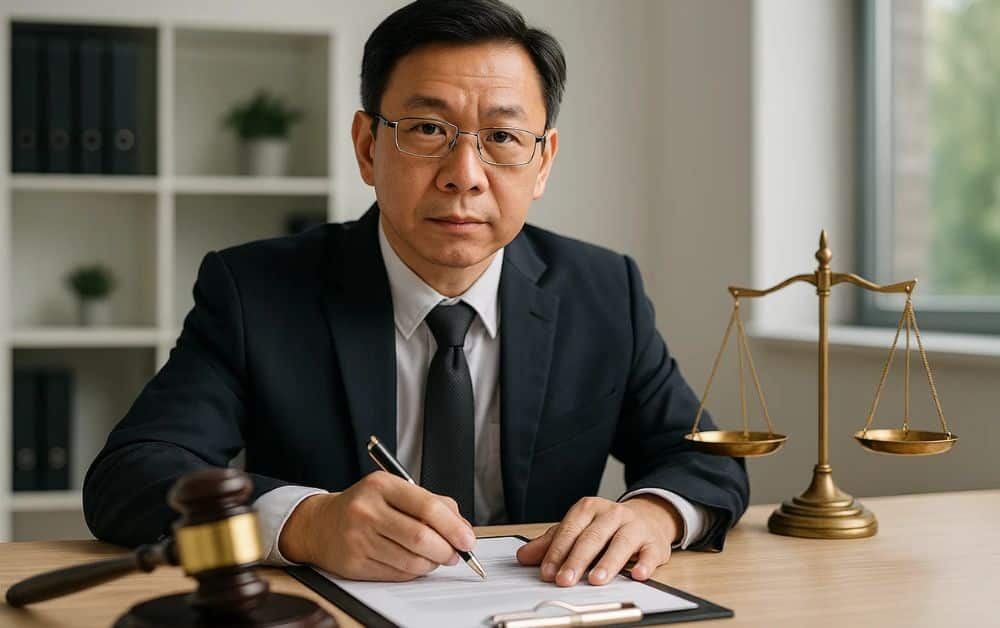+65 63232320
9am to 6pm
How to Choose a Lawyer for Divorce: 5 Expert Tips & Guidance

Divorce is never an easy decision, and the process that follows can be emotionally and financially draining. From property division and spousal support to child custody, there are many aspects that require careful handling. One of the most crucial steps you can take is choosing the right lawyer to guide you through this challenging process. The lawyer you select will play a vital role in protecting your rights, negotiating settlements, and ensuring that you have a fair outcome.
Here are five expert tips and guidance to help you choose the divorce laywer singapore for your situation.

1. Look for Experience in Family Law
Not all lawyers handle divorce cases, and even fewer specialize in family law. When choosing a divorce lawyer, it’s essential to look for someone with extensive experience in family and matrimonial matters. A lawyer who regularly handles divorce matters will understand the intricacies of local laws, court procedures, and common challenges that may arise.
An experienced divorce lawyer will also be able to anticipate potential issues such as child custody disputes, maintenance (or alimony), or the division of assets. Their knowledge and experience give you a strategic advantage when negotiating settlements or presenting your case in court.
2. Assess Communication and Compatibility
Divorce is a highly personal and emotional process. You will need a lawyer with whom you can openly communicate and share sensitive information. Pay attention to how a lawyer listens to you during your first consultation. Do they let you explain your concerns? Do they simplify complex legal terms for you, or do they use jargon that leaves you confused?
Compatibility is equally important. You should feel comfortable with your lawyer, as they will be your advocate and guide during this difficult time. A lawyer who respects your goals and values your perspective will be better equipped to represent your interests.
3. Understand Their Approach and Strategy
Different divorce lawyers may have different styles. Some may prefer aggressive litigation, while others emphasize negotiation and mediation. It is important to choose a lawyer whose approach matches your needs.
- If your divorce is likely to involve conflict—such as custody battles or disputes over high-value assets that there will be no consensus between parties on a settelement—you may want a lawyer who is assertive and ready to litigate.
- If you and your spouse are open to resolving issues amicably, a lawyer skilled in mediation or collaborative law may be the right fit.
During your consultation, ask the lawyer about their preferred strategy and how they typically handle cases similar to yours. This will give you a clearer sense of what to expect.
However, please note that the Family Courts in Singapore is now taking the Therapeutic Justice approach to all divorce matters. Therapeutic justice is a problem-solving approach in family law that shifts focus from adversarial conflict to collaborative resolution by addressing the emotional and non-legal needs of families, aiming for healing, constructive relationships, and enduring solutions through a multi-disciplinary system including therapy, counseling, and mediation. The goal is to support families in moving past acrimonious disputes and building a positive, hopeful future by prioritizing the well-being of family members, particularly children.
Pursuant to the above, you should seek a lawyer that strongly adopts the Therapeutic Justice approach as much as possible and tries to resolve the issues with the least amount of emotional pain and time, as well as financial expenditure. This approach should be taken at the start. However, if a resolution to the issues cannot be achieved, then the lawyer should be able to effectively litigate your matter for you.
4. Review Reputation and Track Record
A lawyer’s reputation can speak volumes about their ability and professionalism. Research their background, read client testimonials, and look into reviews on trusted platforms. Word-of-mouth recommendations from friends, family, or colleagues who have gone through a divorce can also be valuable.
In addition to reviews, ask about their track record in divorce cases. Have they handled cases similar to yours? What outcomes have they achieved? While past results cannot guarantee future outcomes, they can give you confidence in the lawyer’s abilities.
5. Evaluate Fees and Transparency
Divorce proceedings can become costly, so understanding a lawyer’s fee structure is critical. Some lawyers charge hourly rates, while others may offer flat fees for specific services or estimates based on the stages of the proceedings. Make sure you ask about all potential costs, including court filing fees, administrative expenses, and additional charges.
A good lawyer will be upfront about fees and provide a written agreement that outlines the costs. Transparency in financial matters builds trust and helps you plan your budget without unwelcome surprises.
Additional Guidance for Choosing the Right Lawyer
- Trust Your Instincts: If something doesn’t feel right during your consultation, it’s okay to look for another lawyer.
- Accessibility Matters: Choose a lawyer who is responsive and available when you need updates or have urgent concerns.
- Local Knowledge: A lawyer familiar with local court rulings and procedures may have valuable insights into how your case might unfold.

Conclusion
Choosing a lawyer for divorce is one of the most important decisions you’ll make during the process. The right lawyer can provide clarity, support, and strong representation, ensuring that your rights and interests are protected every step of the way. By considering experience, communication, strategy, reputation, and transparency, you can make an informed choice that gives you peace of mind during this difficult time. For those seeking trusted representation and compassionate legal guidance, Dhillon & Panoo LLC shines as a firm dedicated to protecting clients with integrity, expertise, and unwavering commitment.
Related Posts
Recent Posts
- Why You Need a Lawyer Specializing in Drug offences Immediately After Arrest in Singapore?
- What is a Probate / Letters of Administration Lawyer in Singapore?
- Understanding the Role of a Litigation Lawyer During a Court Case
- Why Consulting a Family Lawyer Early Can Save You Time and Money?
- Corporate Lawyer for Business Contracts and Agreements in Singapore










